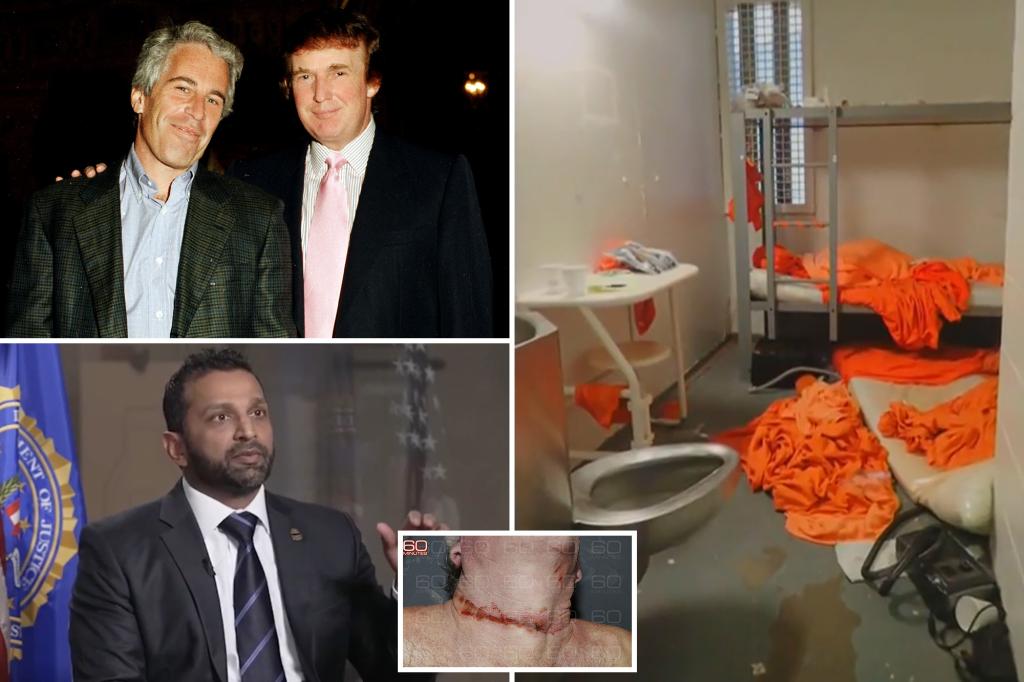Epstein Family Outraged: Brother Challenges FBI Director’s Suicide Claims
The brother of convicted sex offender Jeffrey Epstein has publicly disputed FBI Director Christopher Wray’s recent reaffirmation that Epstein died by suicide in 2019. Mark Epstein’s vocal skepticism has reignited long-standing controversies surrounding the financier’s death in a Manhattan jail cell while awaiting trial on sex trafficking charges.
Mounting Doubts Over Official Narrative
During a Senate Judiciary Committee hearing last week, Director Wray stated the FBI’s investigation “concluded that Epstein took his own life.” This declaration prompted Mark Epstein to demand transparency, telling reporters: “The forensic evidence doesn’t support their claims. We deserve answers, not rehearsed statements.”
Key points fueling skepticism include:
- Autopsy findings showing multiple neck bone fractures atypical in hanging deaths
- Security camera malfunctions during critical hours
- Documented failures in prison staffing protocols
Dr. Michael Baden, the forensic pathologist hired by Epstein’s family, maintains the injuries “are more consistent with homicidal strangulation than suicidal hanging.” However, New York City’s Chief Medical Examiner Dr. Barbara Sampson stands by the suicide determination.
Institutional Failures Under Scrutiny
The Metropolitan Correctional Center’s (MCC) systemic failures have drawn sharp criticism from multiple oversight bodies:
- Department of Justice Inspector General identified 13 protocol violations
- Two guards pleaded guilty to falsifying records
- Bureau of Prisons paid $1 million settlement to Epstein victims’ families
“This wasn’t just negligence – it was institutional collapse,” said former federal prosecutor David Weinstein. “When someone this controversial dies under government watch, every anomaly becomes evidence of conspiracy.”
Political Ramifications and Public Distrust
The Epstein case intersects with broader concerns about accountability among powerful elites. A 2023 Gallup poll shows:
- Only 32% of Americans trust government institutions
- 67% believe wealthy individuals receive preferential justice
- 58% doubt official explanations in high-profile deaths
Congressional Republicans have seized on these concerns. Representative Jim Jordan (R-OH) recently stated: “The American people deserve to know if powerful interests interfered with this investigation.” Meanwhile, Democratic leaders emphasize the need for prison reform rather than conspiracy theories.
Forensic Experts Divided on Key Evidence
The medical evidence remains hotly contested among professionals:
| Evidence | Suicide Argument | Homicide Argument |
|---|---|---|
| Neck fractures | Possible in suicidal hangings among older individuals | More severe than typical hanging injuries |
| Cell placement | Standard protocol for high-risk inmates | Unusual removal of cellmate before death |
Dr. Henry Lee, a renowned forensic scientist, cautions: “In high-profile cases, we must separate scientific facts from emotional speculation. The bone fractures alone don’t prove either scenario.”
What Comes Next in the Epstein Saga?
Legal analysts identify several developing angles:
- Ongoing civil litigation against the Bureau of Prisons
- Potential congressional hearings on prison oversight
- Continued FOIA battles for unreleased documents
As public interest persists, journalists continue uncovering new connections. Recently disclosed flight logs and the ongoing Ghislaine Maxwell appeals ensure the Epstein case remains in public consciousness.
For those seeking comprehensive updates, subscribe to our investigative newsletter covering developments in this and related cases. The truth often emerges gradually – stay informed as this complex story continues unfolding.
See more Update My News



